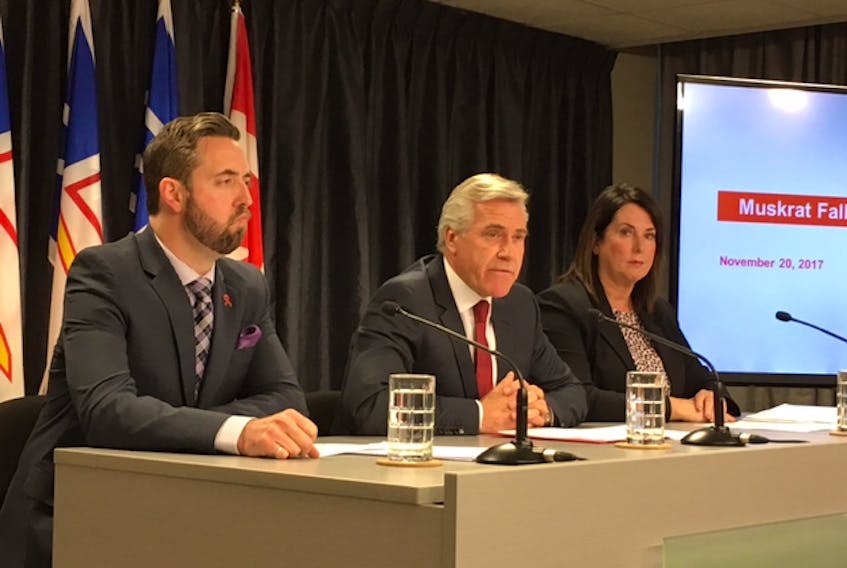Since the inquiry was called into the Muskrat Falls project Monday, there’s been a lot of questions and skepticism about the exercise, and rightly so.

I only wish there had been as much of it in evidence back in 2012, when then premier Kathy Dunderdale sanctioned the project, saying it would “unlock the potential of Newfoundland and Labrador’s energy warehouse and help drive our economy for 100 years to come.”
Perhaps after “drive our economy” her speechwriter might have added “into the ground.”
After all, the price tag has climbed by a whopping $5 billion since then.
The inquiry’s terms of reference have already come in for a fair bit of condemnation, with many people questioning why it will take so long — two years — and more still asking why it contains this clause: “The commission of inquiry shall not express any conclusion or recommendation regarding the civil or criminal responsibility of any person or organization.”
Now, while this proviso was seized upon by some as a thinly veiled attempt to protect politicians or their friends and let the culpable wriggle off the hook, the fact is, commissions of inquiry are not designed to assign blame, but to root out the facts.
…the decision to lay criminal charges is for the justice system to decide and not the role of an inquiry.
In an elucidatory lecture to the McGill Law Journal in 2006, Justice John H. Gomery — who had then just finished up his work heading the sponsorship scandal inquiry — explains why the courts and commissions of inquiry do not share the same mandate.
“Commissions of inquiry are not supposed to be determining civil guilt or civil responsibility or criminal guilt, they are supposed to be fact-finding investigations leading to recommendations…,” he said. “I can tell you that we got a tremendous amount of feedback from individual members of the public and the general theme was, ‘when are you going to stop listening to witnesses and start putting people in jail.’
“I mean, that’s what they wanted me to do and of course that was not my role at all. … Commissions of inquiry have one objective, the justice system has another objective and the two shouldn’t be confused…”
That’s not to say that actions committed in the course of an event that prompts a public inquiry can never lead to criminal charges, just that the decision to lay criminal charges is for the justice system to decide and not the role of an inquiry.
Gomery used the Westray mining disaster as an example of an event where criminal charges were laid and were proceeding, in part, while a public inquiry was ongoing.
Inquiries have their own intrinsic value.
“…The three functions of an inquiry, to investigate, to educate and to inform, are of benefit to Canadian society,” Gomery said.
“To these benefits should be added the benefits deriving from recommendations for change designed to prevent a recurrence in the future of the errors or faults being investigated. Such recommendations, coming from an independent and impartial source, free from political bias, will not only assist the government in taking remedial action but will tend to restore public confidence in the industry or process being reviewed.”
I’m not sure whether the Muskrat Falls inquiry will restore public confidence or reinforce public cynicism, but at the very least, it should lay bare the truth and the political machinations that were at play so that people can draw their own conclusions — about why the project ballooned so disastrously out of control or whether it was even necessary.
As for why it will take two years, despite an understandable public clamouring to get it done sooner, as Gomery explains, commissions of inquiry have to start from scratch, with basic things such as office space, furniture and personnel secured and lawyers recruited, before the commissioner can even begin to familiarize himself or herself with complex subject matter.
In the end, if the truth about Muskrat Falls is outed and the scales fall from our eyes, it will be money and time well spent.
Related column
Pam Frampton: Stan Marshall says Muskrat Falls was always trouble
Pam Frampton is The Telegram’s associate managing editor. Email [email protected]. Twitter: pam_frampton









